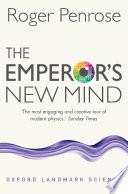“Children are not afraid to pose basic questions that may embarrass us, as adults, to ask.”
Source: The Emperor's New Mind (1989), Ch. 10, Where Lies the Physics of the Mind?, p. 448–9 (p. 580 in 1999 edition).
Context: Beneath all this technicality is the feeling that it is indeed "obvious" that the conscious mind cannot work like a computer, even though much of what is involved in mental activity might do so.
This is the kind of obviousness that a child can see—though the child may, later in life, become browbeaten into believing that the obvious problems are "non-problems", to be argued into nonexistence by careful reasoning and clever choices of definition. Children sometimes see things clearly that are obscured in later life. We often forget the wonder that we felt as children when the cares of the "real world" have begun to settle on our shoulders. Children are not afraid to pose basic questions that may embarrass us, as adults, to ask. What happens to each of our streams of consciousness after we die; where was it before we were born; might we become, or have been, someone else; why do we perceive at all; why are we here; why is there a universe here at all in which we can actually be? These are puzzles that tend to come with the awakenings of awareness in any one of us — and, no doubt, with the awakening of self-awareness, within whichever creature or other entity it first came.
